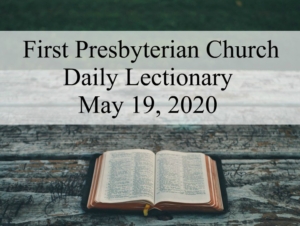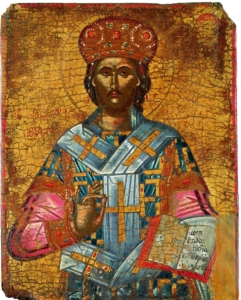
First Reading Leviticus 26:1-20
Second Reading 1 Timothy 2:1-6
Gospel Reading Matthew 13:18-23
1 Timothy 2:1-6
1First of all, then, I urge that supplications, prayers, intercessions, and thanksgivings be made for everyone, 2for kings and all who are in high positions, so that we may lead a quiet and peaceable life in all godliness and dignity. 3This is right and is acceptable in the sight of God our Savior, 4who desires everyone to be saved and to come to the knowledge of the truth. 5For there is one God; there is also one mediator between God and humankind, Christ Jesus, himself human, 6who gave himself a ransom for all – this was attested at the right time.
Paul’s letter to Timothy reveals some of the unfamiliar dynamics of the ancient world. Ultimately this letter is a trove of seasoned advice from an experienced evangelist to a young pastor. Yet the theology revealed is applicable for us. Here we hear that we should pray for everyone—which we know already. But Paul adds that we should pray for all in high positions—in government and power. Our Reformed ancestors picked up on this theme and had a high opinion about the role of government and its obligation to provide for peace, justice, and general welfare. Hence the city of Geneva, during the pastoral leadership of John Calvin, welcomed religious refugees, provided for public health, and built the first public education system in the world. Of course we want to pray for good government. Paul, on the other hand, lived in imperial Rome, with its systematic violence, abuse of power, and regular persecution of non-Romans. How to reconcile this prayer with the reality of entrenched power? Paul reminds Timothy that our prayers are always for the benefit of others—that they come to knowledge of Jesus Christ, who exercised leadership through servanthood. Could we have any better wish for our leaders?
God, we pray for those in power—in local, state, and national governments—that you would bring them to an awareness of your truth, and your love for them in Jesus Christ. Help them to make wise decisions as they exercise their power in care for others, always in trust that you are Lord of all. We pray through Christ. Amen.
Art: Christ the King of Kings, from Art in the Christian Tradition, a project of the Vanderbilt Divinity Library, Nashville, TN. http://diglib.library.vanderbilt.edu/act-imagelink.pl?RC=55319

Get Social